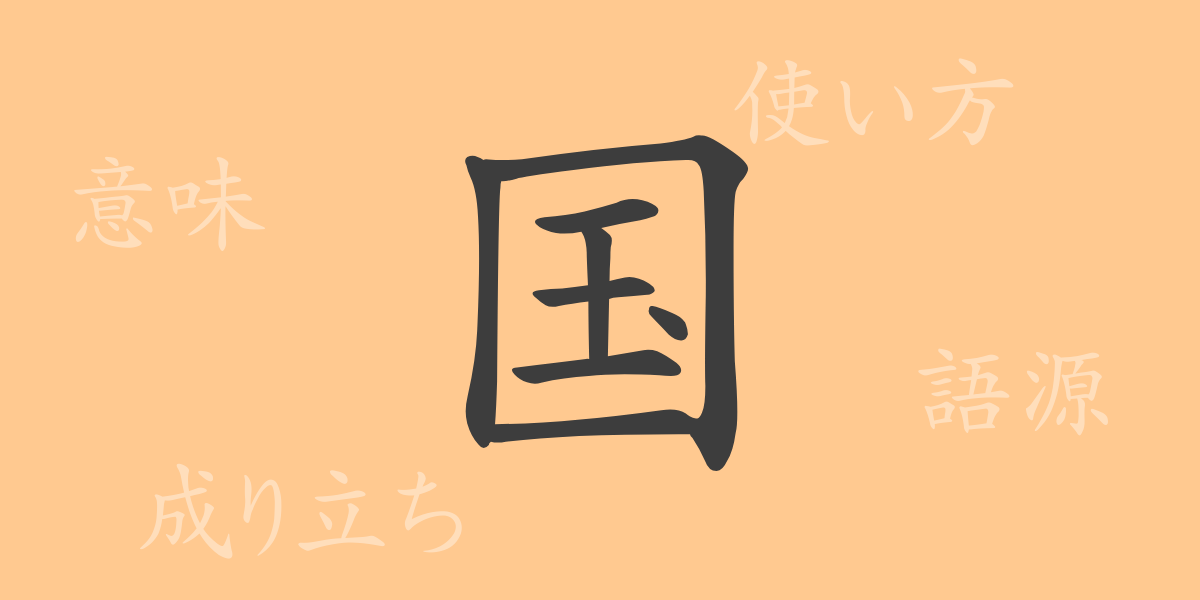The power of a single kanji character goes beyond mere symbols, reflecting the profound depths of culture and history. The commonly used Japanese kanji “国” (くに, kuni) is deeply rooted in our daily lives, representing the essential concept of nation and region. In this article, we will explore the origins, meanings, usage, idiomatic expressions, and proverbs related to “国” (くに, kuni), unveiling the charm of this important character.
Origins of 国(くに, kuni)
The origins of the kanji “国” (くに, kuni) trace back to ancient China. Its prototype can be seen in oracle bone script, where “囗” (the outer border) signifies a boundary and “玉” (the jewel) represents precious objects, symbolizing a place that protects both the territory and the people within the borders. Over time, it evolved into its current form, embodying more abstract concepts.
Meanings and Uses of 国(くに, kuni)
The kanji “国” (くに, kuni) is primarily used to denote a country or territory. However, it also signifies people belonging to that country, as seen in words like “国民” (こくみん, kokumin – citizens) or “国語” (こくご, kokugo – national language). Additionally, it can be used metaphorically, as in the term “家国” (かこく, kakoku), which compares a household to a nation.
Readings, Stroke Count, and Radical of 国(くに, kuni)
The kanji “国” (くに, kuni) is notable for its distinctive readings and form.
- Readings: The on’yomi (音読み) is “コク” (koku), and the kun’yomi (訓読み) is “くに” (kuni).
- Stroke count: “国” (くに, kuni) consists of 8 strokes.
- Radical: The radical for this kanji is 囗 (くにがまえ, kunigamae).
Idioms, Phrases, and Proverbs Using 国(くに, kuni)
Numerous idioms, phrases, and proverbs in Japanese incorporate the kanji “国” (くに, kuni). For example, “国益” (こくえき, kokueki) refers to national interests, “国是” (こくぜ, kokuze) denotes a country’s fundamental policies or principles, “国難” (こくなん, kokunan) signifies a national crisis, and “国交” (こっこう, kokkō) refers to diplomatic relations between countries. Additionally, “国色天香” (こくしょくてんこう, kokushoku tenkō) is a metaphor for a woman of exceptional beauty. These expressions reflect the diverse meanings of the kanji “国” (くに, kuni).
Conclusion on 国(くに, kuni)
The kanji “国” (くに, kuni) plays a role far beyond that of a simple character. It encompasses concepts of nationhood, culture, people, and language, forming an integral part of our identity. The rich meanings and associated expressions of this single character illustrate the beauty and depth of the Japanese language.

























